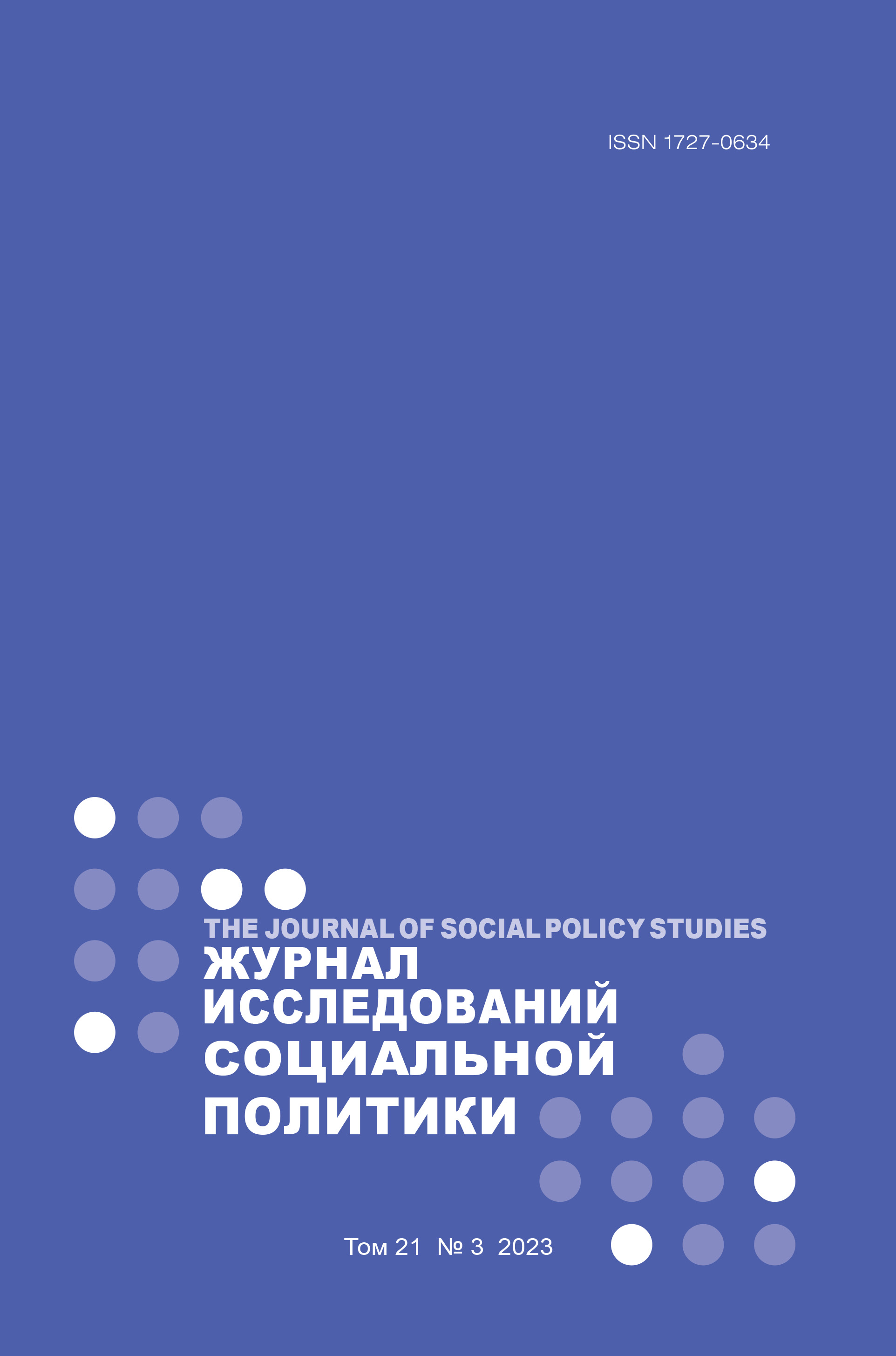New Institutional Forms of Social Services: Vectors of Development Under Conditions of Uncertainty
Abstract
The subject of the study presented in this article is the methods and directions of development of non-governmental social service organizations that have emerged in the process of transformation of the Russian welfare state, which was formed at the turn of the 20th‑21st centuries as a socially providing state, into a social service state. The development of organizations of the non-state sector of social services is regulated by the state as the main institution responsible for the sphere of public welfare. The article considers state strategies aimed at the development of new institutional forms, i. e. the regulatory and legal consolidation of the status of new social service providers, secondary institutionalization, social investment and public-private partnerships, and the own strategies of organizations of the non-profit sector. The latter develop through hybrid forms, integration with other NGOs and social state institutions, incorporation into housing complexes of the urban environment, as well as through the use of digital and relevant technologies for social services for citizens. In a relatively short period of their development, the fulfillment of a social mission remains the predominant vector. At the same time, the majority of NPOs are focused on receiving financial and other forms of assistance from the state. Larger and resource-rich organizations focus on building competitive advantage and developing entrepreneurship by combining different organizational and legal forms, i. e. hybrid forms. The client orientation in the development of new institutional forms of social services is also growing. Each development direction has its own advantages and risks considered in the analysis. The study was conducted using qualitative methods in the form of interviews conducted in 2022 with representatives of NGOs, resource centers, and experts. The concepts of joint production of public goods, social partnership, and intersectoral interaction formed the theoretical basis for the analysis.















